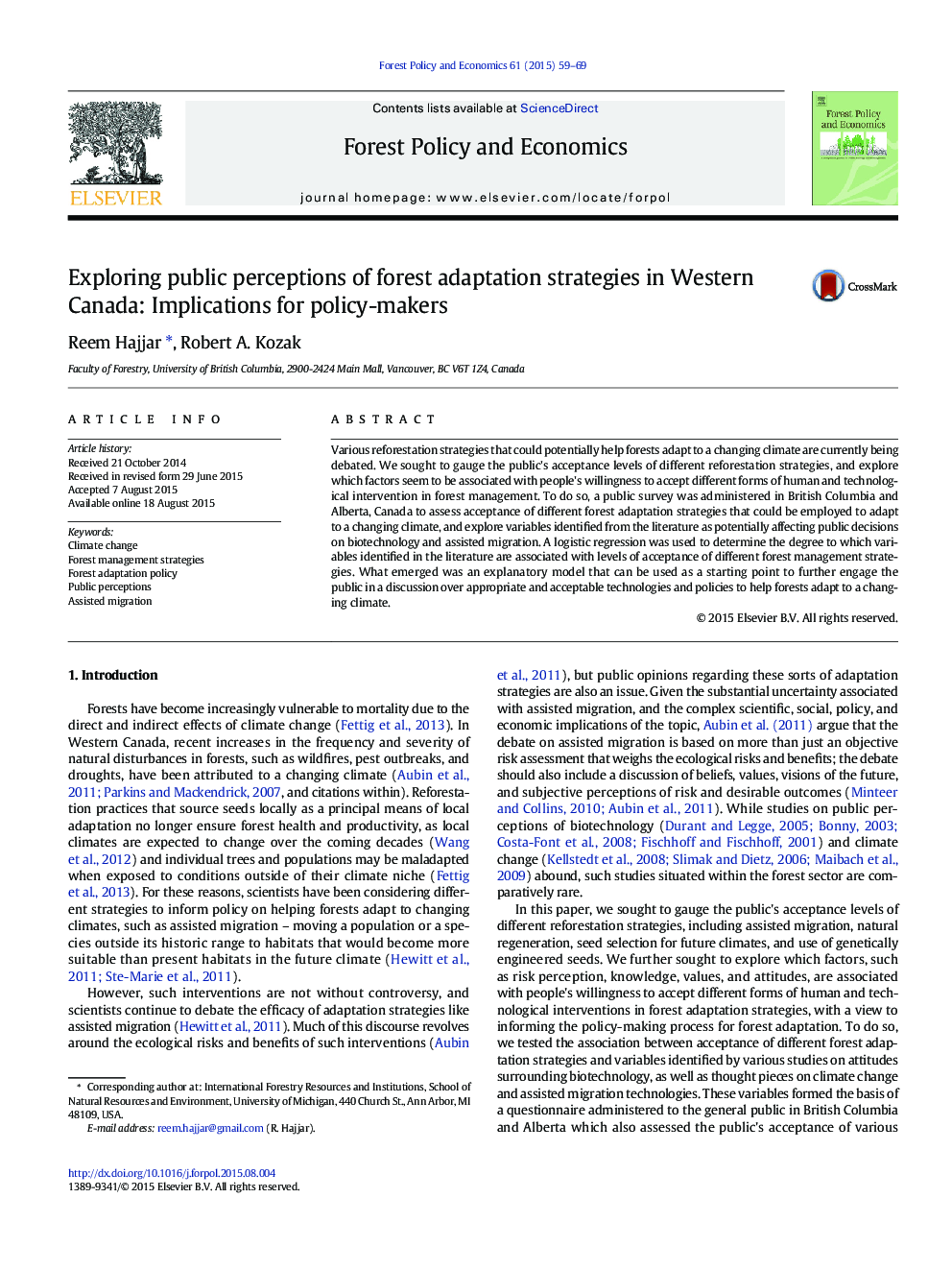| کد مقاله | کد نشریه | سال انتشار | مقاله انگلیسی | نسخه تمام متن |
|---|---|---|---|---|
| 91143 | 159750 | 2015 | 11 صفحه PDF | دانلود رایگان |
• We assess public preferences for forest adaptation strategies.
• We explore factors affecting preferences using logistic regression.
• Attitudes towards nature, skepticism, and trust were the most important factors.
• Risk perception was also factored in consistently to regression.
• These factors need to be considered for public buy-in in policy-making.
Various reforestation strategies that could potentially help forests adapt to a changing climate are currently being debated. We sought to gauge the public's acceptance levels of different reforestation strategies, and explore which factors seem to be associated with people's willingness to accept different forms of human and technological intervention in forest management. To do so, a public survey was administered in British Columbia and Alberta, Canada to assess acceptance of different forest adaptation strategies that could be employed to adapt to a changing climate, and explore variables identified from the literature as potentially affecting public decisions on biotechnology and assisted migration. A logistic regression was used to determine the degree to which variables identified in the literature are associated with levels of acceptance of different forest management strategies. What emerged was an explanatory model that can be used as a starting point to further engage the public in a discussion over appropriate and acceptable technologies and policies to help forests adapt to a changing climate.
Journal: Forest Policy and Economics - Volume 61, December 2015, Pages 59–69
